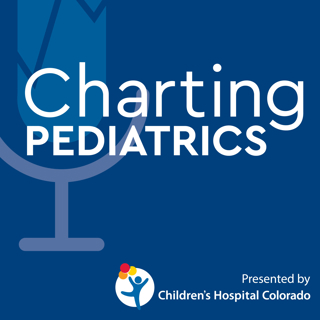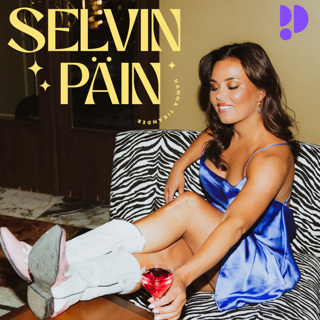
Alleviating Seasonal Allergies (S1:E1 Rebroadcast)
In this episode, Daniel Searing, MD, Professor of pediatrics and allergies at Children's Colorado, talks about seasonal allergies and pollen. He discusses the effects of pollen, how to treat and alleviate allergies, and more. In this episode, Dr. Searing discusses: Pollen and how it affects allergies Why cottonwood trees are a big pollinator, especially in the springtime Why rain and humidity shut down pollen levels Why Colorado's climate makes people more susceptible to allergies How allergy symptoms will vary from year to year The importance of monitoring the quantitative level of pollen in the environment How physicians should manage the initial approach to a child with allergy symptoms Key features to look out for Why treating pollen allergies with persistent treatment is more effective What role the prescription drug Montelukast plays in treating allergic rhinitis What you can do to help prevent pollen from spreading Which medicines and therapies can help alleviate allergies When to see a doctor for seasonal allergies The approach of an immunotherapy treatment plan and the two phases of a typical treatment schedule
2 Huhti 201922min

Cognitive Error in Diagnosis (S2:E31)
As providers, the safety of our patients is paramount. In recent years, increased attention has been given to diagnostic error in medicine, specifically those that arise through error in cognitive perception, failed heuristics and biases. In today’s episode, we are talking with Joe Grubenhoff, MD about error in diagnosis and strategies for reducing cognitive bias. Dr. Grubenhoff is the Associate Medical Director of Clinical Effectiveness and is a pediatric emergency medicine physician at Children’s Colorado. He is also an Associate Professor of Pediatrics at the University of Colorado School of Medicine. Resources mentioned in today's episode: How Doctor's Think by Jerome Groopman, MD Thinking Fast and Slow by Daniel Kahneman What did you think of today's episode? Send Dr. Brumbaugh a tweet @DBrumbaughMD.
26 Maalis 201927min

Measles (S2:E30)
Measles is a highly contagious respiratory disease that spreads easily through the air or on infected surfaces; According to the American Academy of Pediatrics, of every 1,000 people who get measles, 1 to 2 will die. And the numbers are even higher in developing countries where the case fatality rate is 4-10%. As providers who care for kids, we urge our parents, schools and communities to protect each other by vaccinating for measles. In today’s episode Edwin Asturias, MD joins us to talk through the classic symptoms, treatment and vaccination recommendations for measles. Dr. Asturias is the Director for Latin American Infectious Disease at Children’s Hospital Colorado. He is also an Associate Professor or Pediatric Infectious Disease at the University of Colorado School of Medicine. Let Dr. Nicklas know what you thought of today's episode - send him a tweet @DanielNicklasMD
19 Maalis 201927min

Toxicity and the Most Common Pediatric Overdoses (S2:E29)
In today's episode we dive in to the topic of toxicity and the most common overdoses in pediatric medicine. Our guest is Sam Wang, MD, returning from earlier this season when we covered the topic of Marijuana as Medicine (S2:E14). Dr. Wang is a Pediatric Emergency Medicine Physician and Medical Toxicologist at Children’s Hospital Colorado and the University of Colorado School of Medicine. Let us know what you thought of today's episode: Tweet Dr. Brent (@AlisonBrentMD) or write to us, chartingpediatrics@childrenscolorado.org.
12 Maalis 201933min

Overcoming HPV Vaccination Hesitancy (S2:E28)
HPV vaccine rates remain low with only about 16% of U.S. adolescents being fully vaccinated by the time they turn 13 according to the CDC. With about 34,000 cases of HPV-induced cancers annually, we as providers have an opportunity to encourage more parents to vaccinate their children. In this episode we talk with guests Brian Gablehouse, MD, and Sean O’Leary, MD, about HPV vaccination hesitancy, recent updates to the HPV vaccination schedule and how to utilize motivational interviewing techniques when talking with parents. Dr. Gablehouse is a pediatrician at Peak Pediatrics located in Wheat Ridge and Thornton, Colorado. Dr. O’Leary is Director of the Colorado Pediatric Practice-Based Research Network and works on the Infectious Disease team at Children’s Hospital Colorado; he is Associate Professor at the University of Colorado School of Medicine. Let us know what you think of today's episode! Drop us an email. Check out S2:E12 for further discussion about the topic of Vaccinations and Motivational Interviewing Techniques.
5 Maalis 201924min

Food Allergy Immunotherapy (S2:E27)
Historically, there has not been a Food and Drug Administration – approved medical therapy to treat food allergies. This is about to change with emerging research in immune desensitization and clinical trials with food immunotherapy products that will likely soon hit the market. In today’s episode, we will talk about these clinical trials, what two products are likely to be FDA-approved by the end of 2019 and what that means for your food-allergic patients. Today’s guests are David Fleischer, MD and Matthew Greenhawt, MD. Dr. Fleischer is Director of the Allergy and Immunology Center at Children’s Hospital Colorado and Associate Professor in Pediatrics and Allergy at the University of Colorado School of Medicine. Dr. Greenhawt is Director of the Food Challenge and Research Unit at Children’s Hospital Colorado Associate Professor of Pediatrics and Allergy at the University of Colorado School of Medicine. Related Research: Effect of Epicutaneous Immunotherapy vs Placebo on Reaction to Peanut Protein Ingestion Among Children With Peanut Allergy: The PEPITES Randomized Clinical Trial, JAMA February 22, 2019 We love hearing from our listeners - email the Charting Pediatrics team to suggest a future topic or tell what you thought of this one.
26 Helmi 201959min

Congenital Heart Disease: Ongoing Management (S2:E26)
As a continuation of our discussion of congenital heart disease from Season 2, Episode 21, we are going to look at the primary care provider’s ongoing role caring for these patients; signs and symptoms of undiagnosed patients and how to support adolescent patients transitioning to adult care. Today’s guest is Joe Kay, MD. Dr. Kay is Program Director of the joint Adult Congenital Heart Disease Program at the University of Colorado Hospital and Children’s Hospital Colorado, and Associate Professor of both Pediatrics and Medicine at University of Colorado School of Medicine. We love hearing from our listeners! Reach out and tell us what you would like to hear in a future episode.
19 Helmi 201918min

Repeat Concussion and Sports Retirement Case Study (S2:E25)
How many concussions are too many for a young athlete? When should sport retirement be considered? In today's episode we are going to look at the case of a high school athlete as the basis for exploring these questions with Julie Wilson, MD. Dr. Wilson is Co-Director of the Concussion Program at Children's Hospital Colorado and Assistant Professor at the University of Colorado School of Medicine. Tell us what you thought about today's episode. Charting Pediatrics is now on Spotify!
12 Helmi 201926min





















